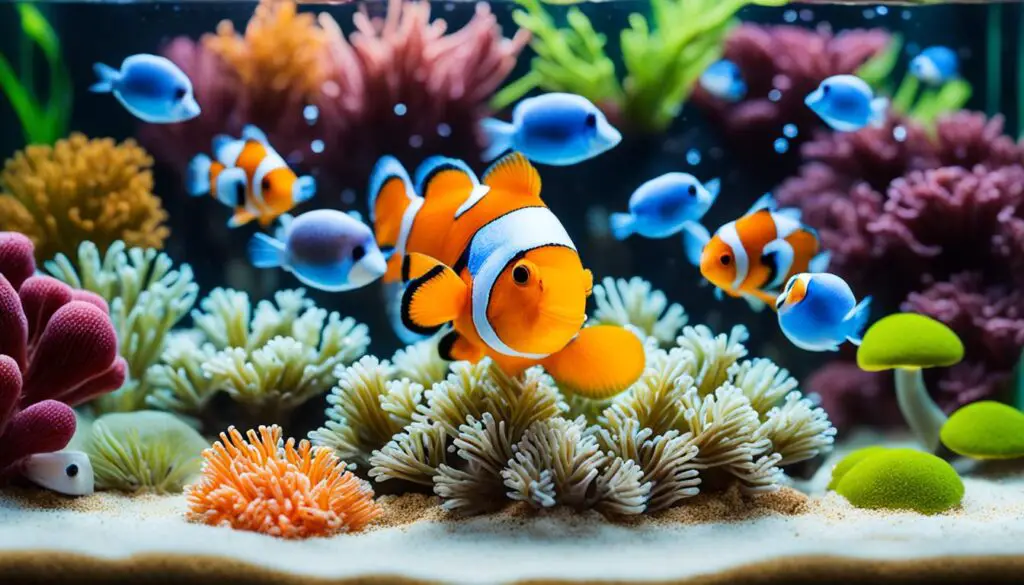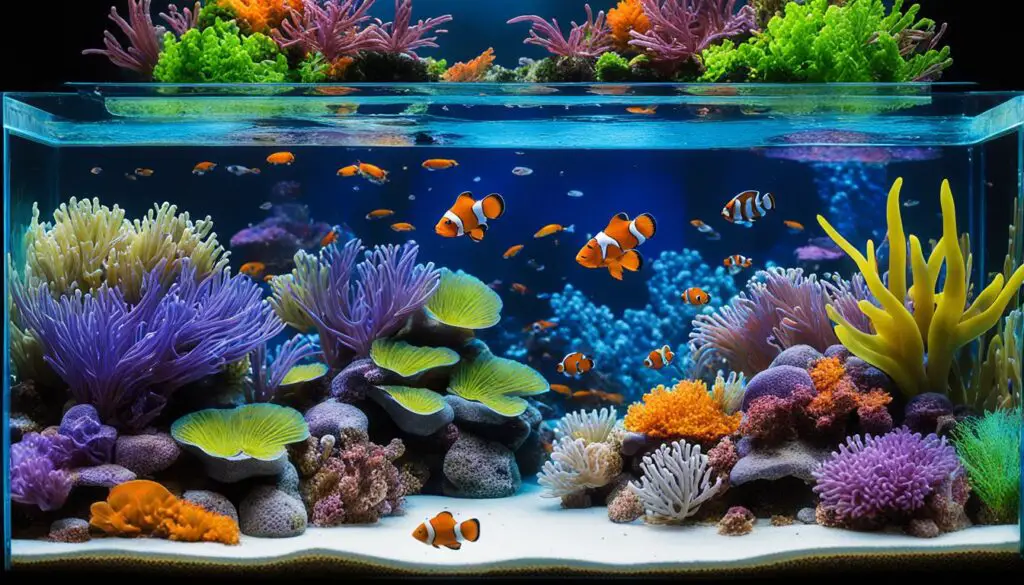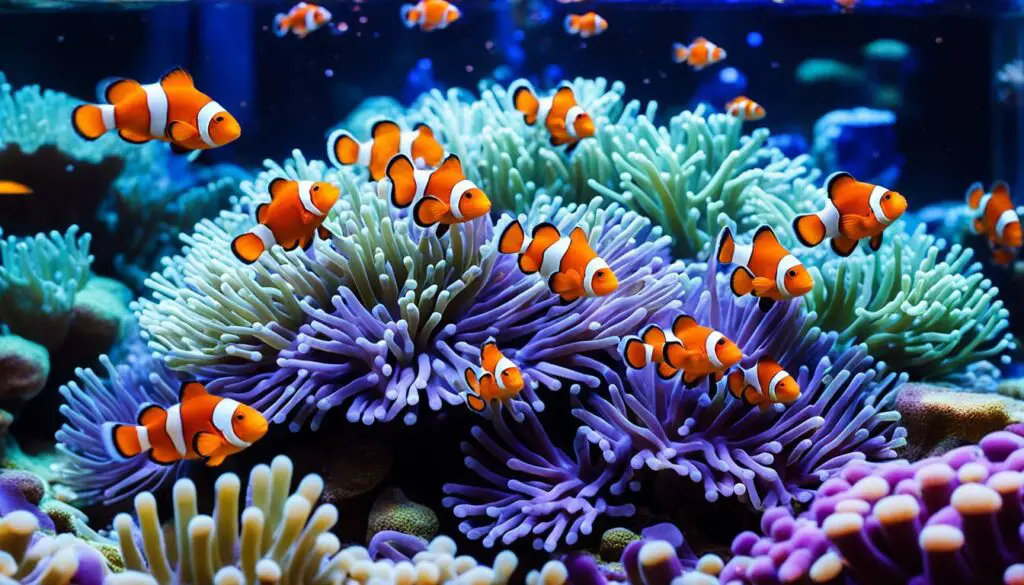How Long Can Coral Be Out Of Water
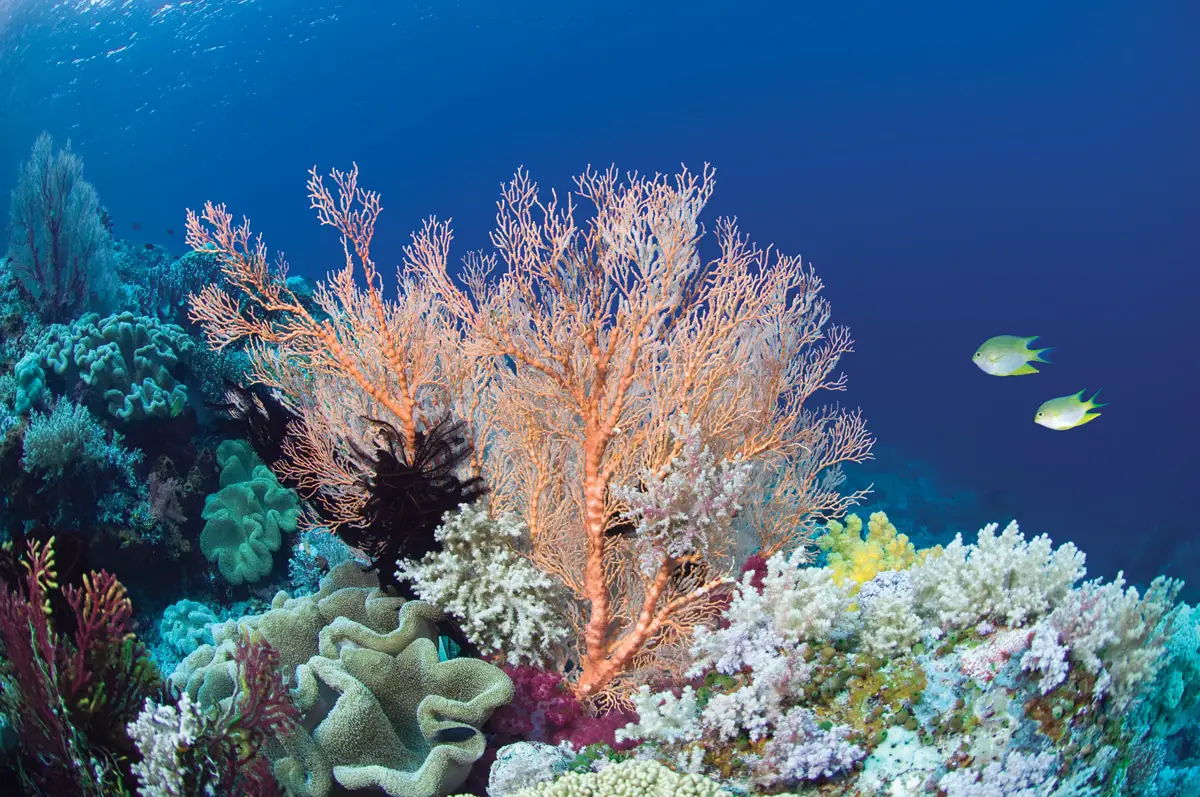
Introduction
How Long Can Coral Be Out Of Water: Coral reefs are vibrant and biodiverse marine ecosystems that play a crucial role in supporting oceanic life. These remarkable underwater structures are composed of colonies of tiny, polyp-like creatures called coral polyps, which secrete calcium carbonate to form intricate, calcium-rich skeletons. While corals thrive in the nutrient-rich waters of the world’s oceans, they are incredibly sensitive to environmental changes and disturbances.
One critical aspect of coral biology that often goes overlooked is their reliance on water. Corals are aquatic organisms, and their survival is intricately linked to the surrounding seawater. However, there are instances when coral colonies may be exposed to air, such as during extreme low tides, the grounding of ships on reefs, or coral transplantation efforts. This raises a vital question: how long can coral be out of water before it faces irreparable damage or death?
Understanding the resilience and limitations of coral out of water is essential for conservation efforts and the restoration of damaged reef systems. Factors such as the species of coral, environmental conditions, and the duration of exposure all influence the coral’s ability to survive without water. This knowledge informs strategies for coral conservation, reef restoration, and emergency response to coral-related incidents.
We will explore the fascinating world of coral biology, the factors influencing coral’s ability to survive out of water, and the implications of this research for coral reef management and conservation. By delving into this topic, we can gain a deeper appreciation for these fragile but vital marine ecosystems and work towards their protection and preservation.
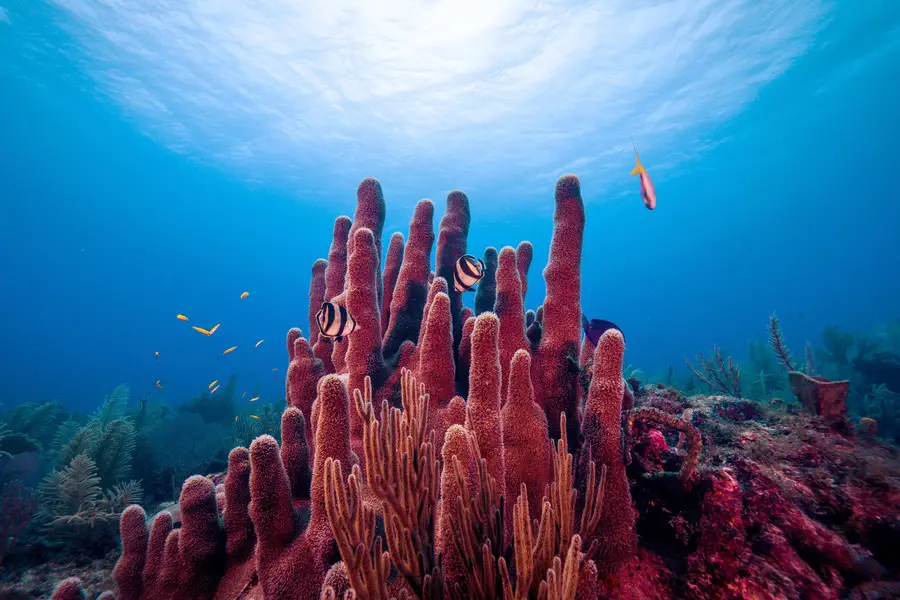
How long can I keep corals out of water?
Montipora corals can survive out of your aquarium water for 15-30 minutes, however, always try to get your monti back into the water as soon as possible, and keep it as wet while it is exposed to air.
Corals are living animals that are adapted to life in the ocean, where they rely on a constant supply of water for their survival. However, there are situations when corals need to be temporarily removed from water, such as during coral fragging (the process of cutting and transplanting coral fragments), transportation, or maintenance of aquarium systems.
The duration for which corals can safely be out of water varies depending on several factors. One key factor is the species of coral, as some are more resilient than others and can withstand longer periods of air exposure. Environmental conditions, such as temperature, humidity, and light levels, also play a role in determining how long corals can survive outside of water.
Ultimately, the goal is to ensure the well-being of corals, whether in a natural reef setting or a home aquarium, by minimizing their exposure to air and providing them with optimal conditions for survival when they are temporarily out of their aquatic habitat.
How long can corals be exposed to air?
They can obviously be tougher than we tend to think, and keeping this in mind, it should not be such a surprise to find that many corals can survive in a bag without water for several hours.
The duration for which corals can be exposed to air without suffering irreparable harm varies widely depending on several factors, making it a crucial consideration for coral conservation, research, and aquarium maintenance.
- Coral Species: Different coral species exhibit varying degrees of tolerance to air exposure. Some hardy species can endure more extended periods out of water, while others are extremely sensitive and may be damaged or die quickly when exposed to air.
- Environmental Conditions: Environmental factors such as temperature, humidity, and light levels can significantly impact a coral’s ability to survive out of water. Maintaining a stable, suitable environment during air exposure is essential to minimize stress and tissue damage.
- Coral Health: The overall health and condition of the coral before exposure play a critical role. Healthy corals tend to be more resilient and have a better chance of surviving air exposure than stressed or weakened ones.
- Handling and Care: Gentle handling and proper care during removal, transportation, or maintenance are crucial. Damage during these processes can exacerbate the negative effects of air exposure.
Beyond this timeframe, the risk of stress, tissue damage, and potential mortality increases significantly. However, it’s essential to research and consider the specific requirements of the coral species you are working with and take all necessary precautions to maintain their well-being when exposed to air.
Can coral live outside of water?
Most corals can be exposed to air without problems. Reefs occasionally peek out of the water at low tide and survive a few hours. They secrete a protective mucus that prevents drying out.
Coral is a marine organism adapted for life in the ocean, and its ability to survive outside of water is extremely limited. While corals are indeed remarkable and resilient creatures, they are not designed to exist for extended periods on land. Here are a few key points to consider:
- Respiration: Corals rely on a constant flow of water to obtain oxygen and expel waste products. When removed from water, their respiration is compromised, leading to a lack of oxygen and a buildup of harmful waste, which can be fatal.
- Desiccation: Coral polyps are delicate and highly sensitive to changes in moisture levels. Exposure to air can quickly lead to desiccation, causing the coral’s tissues to dry out and die.
- Temperature Stress: Corals are adapted to stable water temperatures in the ocean. Being outside of water exposes them to rapid temperature fluctuations, which can lead to stress and tissue damage.
- UV Radiation: Ultraviolet (UV) radiation from the sun can be harmful to coral tissues when they are not submerged. Overexposure to UV rays can lead to coral bleaching and damage.
While there have been instances where corals have been temporarily removed from water for research, transplantation, or other purposes, these situations are carefully managed and controlled. In such cases, experts take precautions to minimize stress and maintain suitable environmental conditions.
Their biology, physiology, and ecological niche are intricately tied to aquatic environments. Preserving coral reefs and their delicate ecosystems is critical to their survival, as they depend on the ocean for their well-being and longevity.
How long can coral live without oxygen?
It looks like some corals can endure hypoxic conditions for several weeks, so they must have tools for coping with low oxygen. As corals photosynthesize during the day, they release oxygen, which might help to reduce the amount of hypoxia they experience, especially in shallow water.
Corals, like all animals, require oxygen to survive. They have evolved to extract oxygen from the water column through a process called respiration. Without a constant supply of oxygen in the surrounding water, corals would not be able to survive. So, in essence, corals cannot live without oxygen, as they rely on it for their basic physiological functions.
The respiration process in corals involves the exchange of gases, where they take in oxygen from the water and release carbon dioxide. Oxygen is essential for their metabolism, growth, and overall health. Insufficient oxygen levels, whether due to pollution, temperature stress, or other factors, can lead to coral stress and, in severe cases, coral bleaching or even death.
When coral colonies are exposed to prolonged oxygen deprivation, typically caused by factors like sedimentation or nutrient runoff that reduces water quality, it can lead to significant stress and damage. However, the exact timeframe for how long coral can survive without adequate oxygen varies based on factors like species, environmental conditions, and the coral’s overall health.
Do corals need sunlight to survive?
Because photosynthesis requires sunlight, most reef-building corals live in clear, shallow waters that are penetrated by sunlight.
Corals do need sunlight to survive, but their relationship with sunlight is more complex than simply requiring it for survival. Sunlight is crucial for the growth and health of coral reefs, and it plays a fundamental role in the symbiotic relationship between corals and the photosynthetic microorganisms known as zooxanthellae. Here’s how sunlight is essential for corals:
- Photosynthesis: Corals do not rely solely on filter-feeding to obtain nutrients. They have a mutualistic relationship with zooxanthellae, which live within the coral tissues. These photosynthetic algae convert sunlight into energy through photosynthesis, producing oxygen and organic compounds that they share with the coral host.
- Growth and Calcium Carbonate Production: Sunlight also fuels the growth of coral polyps and the deposition of calcium carbonate, which forms the hard exoskeletons of the coral colonies. This process, called calcification, is vital for building and maintaining the structure of coral reefs.
- Color and Pigmentation: Sunlight influences the coloration and pigmentation of corals. The vibrant colors of coral colonies are partly due to the presence of pigments that protect them from excessive UV radiation.
While corals depend on sunlight, they have adapted to specific light conditions. They are typically found in shallow, clear waters where sunlight can penetrate to support photosynthesis. Excessive heat and light, however, can lead to coral bleaching, a stress response in which corals expel their zooxanthellae, which can be fatal if prolonged.
How long can corals stay out of water?
I’ve seen the harvest of acropora corals from Indonesia and Bali, they normally leave the corals out on those white picnic tables for hours at a time . I am sure you can easily leave them out for 20 minutes with no fear of loss and upto 1 hour if you “forgot” just be sure the ambient temp is similar to the tank.
Corals are incredibly resilient and adaptable organisms, but they are primarily designed to thrive underwater. When corals are exposed to air and removed from their natural aquatic habitat, their survival time is limited. The duration corals can stay out of water largely depends on several factors.
First and foremost, the species of coral plays a crucial role. Some species are more tolerant of brief periods of air exposure than others. Generally, hard corals, such as brain and staghorn corals, tend to be more resilient than soft corals.
The temperature and humidity levels also significantly affect their survival. Corals can quickly dehydrate when exposed to dry air. Therefore, maintaining a humid environment can extend their survival time.
Additionally, the handling and transportation methods are essential. Careful handling to minimize physical damage and providing a stable environment during transport can help prolong their viability.
In ideal conditions, some corals may survive for several hours to a couple of days out of water. However, it’s crucial to emphasize that corals are delicate organisms that should be handled with extreme care, and their removal from their natural habitat should be minimized to protect these vital components of marine ecosystems.
What happens if you take coral out of water?
They can obviously be tougher than we tend to think, and keeping this in mind, it should not be such a surprise to find that many corals can survive in a bag without water for several hours.
When coral is taken out of water, several detrimental consequences unfold due to its adaptation to the underwater environment.
Dehydration: Coral polyps are adapted to constant exposure to water, and their tissues are highly permeable. When removed from water, they quickly begin to dehydrate, leading to cell damage and death.
Temperature Stress: Corals are sensitive to temperature changes. Being out of water exposes them to rapid temperature fluctuations, which can cause thermal stress, disrupt their metabolic processes, and potentially lead to coral bleaching.
Reduced Feeding: Corals rely on tiny, symbiotic algae called zooxanthellae for nutrition. When out of water, they cannot efficiently capture prey or absorb nutrients from the surrounding water, which can result in starvation.
Physical Damage: Handling coral can inadvertently lead to physical damage, breaking delicate branches and structures, which may hinder their ability to recover when returned to the water.
Disease Susceptibility: Coral tissues are more susceptible to infections and diseases when they are stressed or injured, which can occur when removed from their natural habitat.
Overall, taking coral out of water can lead to various negative consequences, including tissue damage, stress, and potential death. To protect coral ecosystems, it is essential to minimize disturbance and avoid removing coral from their underwater homes, as they play a vital role in marine ecosystems and their overall health is crucial for the biodiversity of our oceans.
Does coral need water to live?
Most reef-building corals also require very saline (salty) water ranging from 32 to 42 parts per thousand. The water must also be clear so that a maximum amount of light penetrates it.
Coral indeed needs water to survive, but it’s important to clarify that coral is not a standalone organism; it is a complex symbiotic relationship between tiny animals called polyps and photosynthetic algae known as zooxanthellae. These coral polyps live in colonies and are responsible for building the calcium carbonate skeletons that create the beautiful coral reefs we see in oceans worldwide.
Water is essential for the photosynthetic processes of the zooxanthellae living within the coral polyps. These algae require sunlight and carbon dioxide dissolved in water to produce food through photosynthesis. This symbiotic relationship is the foundation of the coral’s ability to build and maintain its calcium carbonate exoskeleton.
Coral indeed needs water to live, but it’s the interplay between the coral polyps, their symbiotic algae, and the aquatic environment that sustains these vibrant and ecologically crucial ecosystems. Any disruption to this delicate balance, such as rising ocean temperatures or pollution, can have devastating consequences for coral reefs worldwide.
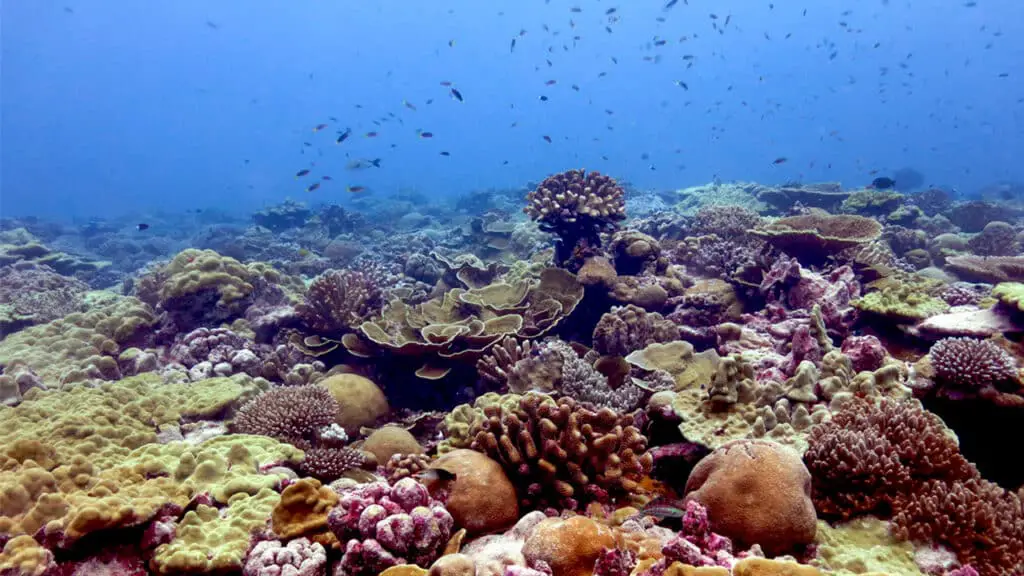
Conclusion
Our exploration of this topic underscores the critical importance of understanding coral biology and behavior. Such knowledge is indispensable for informed coral reef management and conservation efforts. It enables us to develop strategies for minimizing harm during coral transplantation and emergency interventions, as well as for rehabilitating damaged reefs.
Moreover, our investigation has revealed the fragility of coral ecosystems and the urgent need for their protection. Coral reefs are not only breathtakingly beautiful but also essential for the health of our oceans and the global ecosystem.
As climate change and human activities continue to threaten coral reefs, the preservation of these vital ecosystems has never been more crucial. By better understanding how long coral can endure out of water and taking decisive conservation actions, we can hope to ensure that these underwater wonders continue to thrive for generations to come. Coral conservation is a call to action, a commitment to safeguarding the biodiversity and resilience of our oceans.

